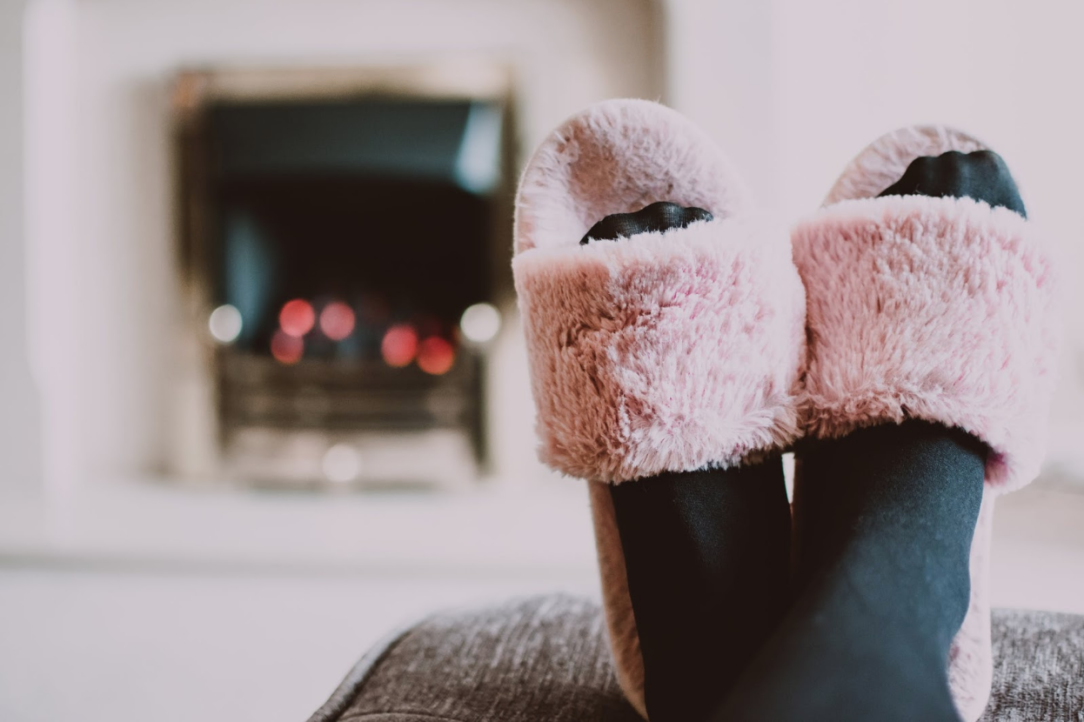

By ena ganguly
“I find it kind of offensive that you would criticize Black people for wearing their shoes inside their homes.” My partner looked at me with all the restraint in the world. She was upset, and rightfully so, while trying to explain to me why I should not criticize folks, especially Black people who come from or have come from poverty, for wearing shoes inside the house.
We were watching an episode of Black-ish one night after dinner, as we usually do. I couldn’t help but observe how this family, in their very lavish home, wore their outside shoes everywhere, even while on the couch or the bed. I turned to her to exclaim my disdain, saying that I would not want that to be the culture in my home.
In that moment, my partner called me in and had to really unpack some stuff with me by sharing her own experiences as a Black person who grew up in poverty in East Austin with four other siblings and a single mother. She explained to me that many people who wear shoes inside the house come from specific backgrounds, like low-income, poor, working class as well as Black and Latinx communities.
Initially, I wondered at my own upbringing and what I’ve learned from there, and it was with great shame that I realized so much of what I’ve internalized around the ‘no shoes inside’ rule stems from a culture that is violent in its classism, racism and casteism. It led me to unpack and sort out my experiences while forming a more informed belief on the ‘no shoes inside’ rule.
I grew up in a home where taking off your shoes before entering the house was a prerequisite that nobody questioned. In fact, in the upper-caste dominant culture we were a part of, keeping your shoes on as you entered someone’s home was more odd than taking them off.
The notion of caste supports that there are people who, by birth, are ‘clean’, meaning they are closer to holiness and Godliness (what’s that saying…’Cleanliness is next to Godliness’?) and so, there are people who are ‘unclean’ and meant to serve those above them who are ‘clean’. Casteism is based upon the systemic belief that caste is an indicator of character, spirituality, and ‘purity’. Caste determines how much respect, consideration and opportunities one has the right to access and it exists in the sub-continent of South Asia as well as in the diaspora.
Meaning, casteism exists here too. Casteism exists in me.
The ‘shoes off’ policy was a social norm in India. It was expected that one would take off one’s shoes when entering homes, religious and holy sites, and even some stores. As folks who benefited from the exploitative caste system and its norms, we never really thought much about it. Until we came to the states.
I was 7 years old when I realized that people wear shoes in their homes. My mother had many African-American friends, who were also her colleagues, so whenever we went over to their homes, we would ask, “Should I take off my shoes?” To which the answer was, “No, come on in.”
To respect their culture and their norms, we would wear the shoes inside, but with the cautious precariousness of children who could be caught any second and scolded for their obvious misbehavior. That moment never came.
As I grew up, I realized that the cultural norms here were dictated by class and race, as well as caste, so often I would find myself taking my shoes off at my more well to do white and Asian friends’ houses, but not always at my middle class Black and Latinx friends’ homes. However, that never stopped me from taking off my shoes when entering peoples’ homes, since it was ingrained in me that taking off my shoes was showing respect and not taking them off was insulting the home and the people who lived in it.
To this day, I struggle with keeping my shoes on in other people’s homes and often wonder to ask our family, friends and neighbors who enter our home to take off their shoes before entering.
I also struggle with unlearning casteism and being casteist, so when I run into articles with titles like “The gross reason why you shouldn’t wear shoes in your house” and “Wearing Shoes Inside The House is Disgusting…Right?” it makes me cringe even more at the long time belief I’ve held around not wearing shoes inside the house. When I read such articles I can witness the heightened sense of germophobia and a hyperactive need for a sterile environment. It all links back to casteism to me, often identified as brahmin supremacy, as well as the colonial attitudes around who is clean and who is dirty, informed by racism and xenophobia, linked to white supremacy.
In any case, not wearing shoes in the house doesn’t make that big of a difference in the overall health of a household. Germs are everywhere. They’re on our shoes, socks, and skin. It doesn’t mean we have to strip it all off. It means that we must negotiate with our internalized need for purity or sterility and question where exactly it comes from.
I do find that asking people to remove their shoes before entering another person’s home can be problematic. From an ableist lens, what are for folks who need wheelchairs and/or have a prosthetic leg going to manage such a request? Are you going to make them leave their wheelchairs and prosthetic leg(s) at the door? Requesting that they clean the wheels of their wheelchairs or take their shoes off may be demeaning, and discourage them from entering that space before they even have a chance to enter it!
I find that such requests can continue to feed into a larger and insidious culture that punishes poor and oppressed-caste communities for the way they learned to navigate various ‘isms’ and obstacles while rewarding those who benefit from their suffering.
As an upper-caste person I am trying to unlearn the parts of my culture that are problematic and I’m very recently beginning to learn how violent the ‘no shoes’ rule is and how it contributes to some of the malignancy embedded into our societal norms.
What is your perspective on the ‘shoes off’ rule? What are some cultural norms you are working to unlearn? Share with us on Facebook, Instagram, and Twitter!


